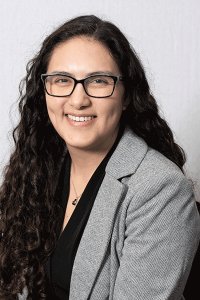Amanda Chung
 What is your position at UNC-Chapel Hill, and how long have you been associated with the University?
What is your position at UNC-Chapel Hill, and how long have you been associated with the University?
I am the chemical hygiene officer/manager, and I started in November 2023.
How did you initiate your career in the chemical safety field or how did you get into chemical safety?
I got into chemical safety during my Ph.D. when I became my labs’ laboratory safety officer and joined our graduate Laboratory Safety Team. My undergraduate research advisor and primary investigator in graduate school were also incredibly safety minded and cared deeply about their researcher’s safety. After a few incidents that occurred to a friend, lab mate, and myself, I realized I wanted to go into chemical safety to help educate other graduate students like myself and advocate for their safety.
Which sectors of the University does your role impact, and in what ways does it contribute to fostering a safer work environment?
My team connects with almost every department within the University as a lot of departments utilize chemicals for their research and a lot of departments utilize chemicals in cleaning. My team and I hope that through our enthusiasm, interactions, and outreach to other departments and individuals, we are able to educate about chemical and laboratory safety and foster a safer work environment.
Describe what you love most about your job in chemical safety and what has been most interesting to you in the job?
I really love getting to interact with a lot of people and educating them about chemical safety that they did not know previously. There is a lot of different aspects of chemical and laboratory safety, and it can be really interesting breaking down things like chemical storage or how you check an eye wash station to be in compliance. In all honesty, every day of the job in Environment, Health and Safety (EHS) is very interesting and can be quite different day to day.
What advice do you have for those in laboratories that are interested in creating a safer culture and environment?
The advice that I would give to laboratories or those interested in creating a safer culture and environment is always ask questions and think through what you and others are doing. Sometimes our old practices and procedures are not always the best way or the safest way of doing things. Never be ashamed or afraid to ask for help or to talk about things that have occurred. Everyone’s actions affect the safety of all people in a laboratory. I made many mistakes in my graduate school career that could have been prevented if I had asked for help or asked the questions that I had. As a wonderful lab mate said in my first year, “you are only as safe as the least safe person in your lab.”
